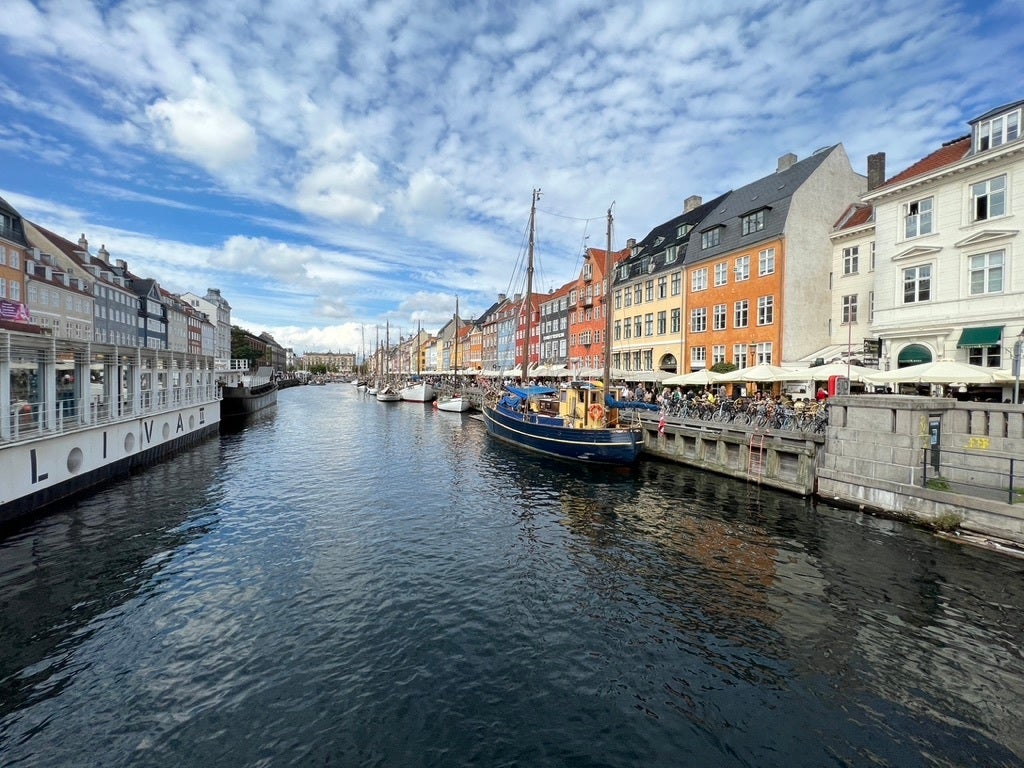Will I need an ETA to travel to the Canary Islands?
Simon Calder answers your questions on travel documents, Copenhagen and compensation for delays


Q I have heard that from January I will need an ETA to travel from the UK to the Canary Islands. Is this correct?
Michael F
A The end of the year is an excellent moment to remind everyone of what will change – and what won’t – in terms of documentation required for travelling to and from the UK. It is a confusing time in terms of red tape, with lots of acronyms popping up as part of “digital border” schemes.
The European Union has two “E” initiatives, neither of which will affect British travellers to the EU until later in 2025 – at the earliest. The much-delayed entry/exit system (EES) was due to come into effect last month. EES is a frontier registration scheme that requires biometrics from “third-country nationals”, as the United Kingdom asked to become. But despite the hopes of officials in Brussels, the scheme was far from ready to begin on schedule on 10 November 2024. Frankly, I would be surprised if it were ready before 2026.
Only when EES has fully bedded in for six months will the next step, Etias (the electronic system for travel information and authorisation), take effect – requiring UK visitors to the EU and wider Schengen area to pay €7 (£6) and register online in advance. Pop that in your calendar for some time in 2026.
So what about the ETA? This is the UK’s electronic travel authorisation: an online permit for foreign visitors who don’t need full visas to visit Britain. It must be applied for online, and costs £10. At present, only passport holders from six Gulf states require an ETA. But from 8 January, all non-Europeans will need this digital permit (or a UK visa) to be allowed into Britain. This applies even if they are only changing planes at London Heathrow. And from 2 April, all visa-exempt foreign visitors, except Irish citizens, will need an ETA to travel to the UK.

Q I shall be visiting Gdansk after Easter from my home in west London, ideally flying on SAS via Copenhagen from Heathrow. The main consideration is a transfer of just 55 minutes in Copenhagen. I will have checked baggage. Is that enough? Presumably, as both legs are SAS, they would not sell it if they didn’t think they could deliver. By the way, border control is not an issue as I travel on an EU passport.
Deirdre P
A Connections from the UK via European hub airports to cities in the EU have become much less certain since Brexit. As the onward leg is regarded as a “domestic flight” within the European Union, with no passport control, you must clear formalities at the intermediate airport. This can take two minutes or two hours. But you are in the happy position of not needing to fret about border control, which will happen after arrival in Copenhagen. You will proceed at pace through the fast track for EU nationals: all the border officials can do is check that the passport is valid and that it is yours. This is unlike the contingent holding British passports, all of whom must be closely scrutinised.
Even with a UK passport, though, I would be relaxed about the 55-minute connection – knowing that if I miss the onward leg because of a long wait at passport control, I will be rebooked on the next available flight. In addition, should I be delayed through the fault of SAS and miss the connection, I will be entitled to £220 in cash compensation if I end up reaching the Polish port three hours or more behind schedule. Luggage transfer at the SAS hub is normally efficient, though you need to be aware that any plane change multiplies the likelihood of baggage going astray.
Ideally, make a virtue of the Copenhagen connection by choosing flights that give several hours between arriving and departing. For example, looking at the SAS website, there is a four-and-a-half-hour connection outbound that will allow time to visit Dragor, the pretty fishing village a short bus ride from the airport. Coming back, one connection gives you six hours and 20 minutes between arriving in Copenhagen and departing for Heathrow – more than enough to take the Metro into the city and enjoy lunch and an afternoon of exploration.

Q I realise you’re having a very busy time at the moment, but can I ask a quick query about the latest round of travel disruption? My partner and daughter are stuck in Brussels for another evening as their British Airways flight back to London Heathrow on Friday was cancelled. Do BA have to cover the cost of an extra night’s accommodation and an extra day of expenses?
Fintan G
A An airline that cancels a flight within Europe, for whatever reason, is obliged under air passengers’ rights rules to provide a replacement form of transport to the final destination as soon as possible. If that means an overnight stay before the rescheduled journey, the carrier is supposed to find a hotel for them and provide meals as appropriate. But, in practice, at times of widespread disruption, the airline can ask the passenger to “pay and reclaim” for the cost of care.
The trip from Brussels was one of 32 British Airways flights cancelled to and from London Heathrow on Friday, as thick fog reduced the so-called “flow rate” of arrivals and departures at the UK’s busiest airport. When BA needs to reduce the number of flights at Heathrow, short-haul links are always the target. Others on Friday included Manchester, Aberdeen and Glasgow (to which two round-trips were grounded). In common with Brussels, these locations have rail links which offer an alternative means of access.
I understand that British Airways will often suggest that disrupted passengers to or from the Belgian capital travel instead on Eurostar (at the airline’s expense). But the Channel Tunnel train operator had heaps of problems of its own on Friday, with a broken-down Eurostar train playing havoc with schedules. So I am not surprised that your partner and daughter spent another night in Brussels.
British Airways must certainly pay for the hotel, as well as meals (no alcohol, mind). The airline will want itemised receipts. If the accommodation requires transport to and from the airport, BA must cover the cost. But if “an extra day of expenses” includes such joys as admission to the splendid Bozar art museum or a trip to the cinema while waiting, those will not be refunded.
Email your questions to s@hols.tv or tweet @SimonCalder






Join our commenting forum
Join thought-provoking conversations, follow other Independent readers and see their replies
Comments